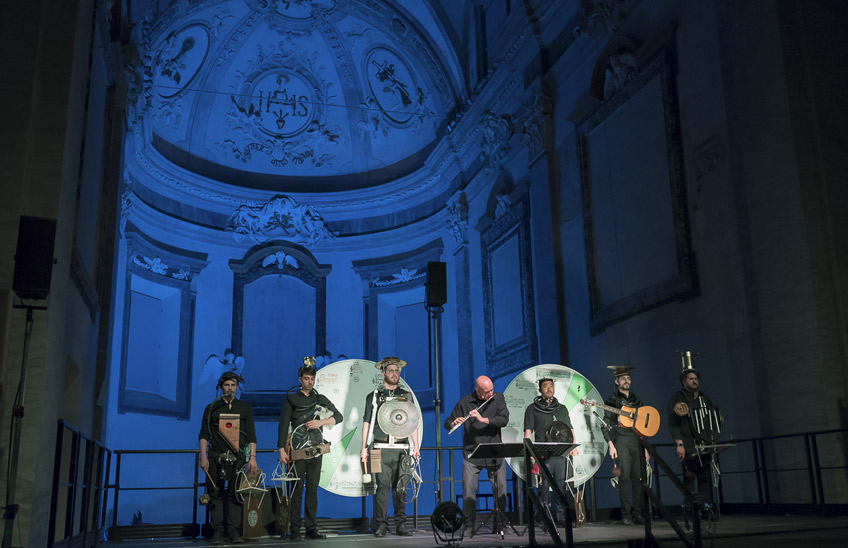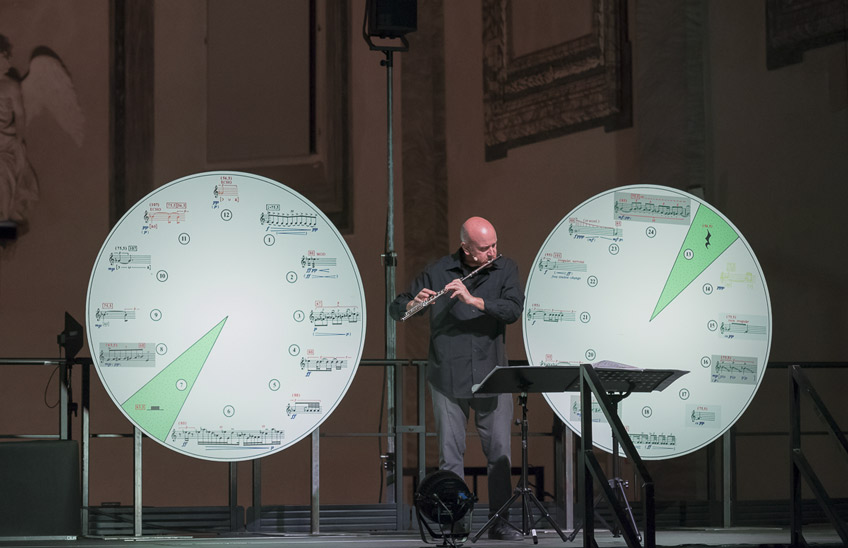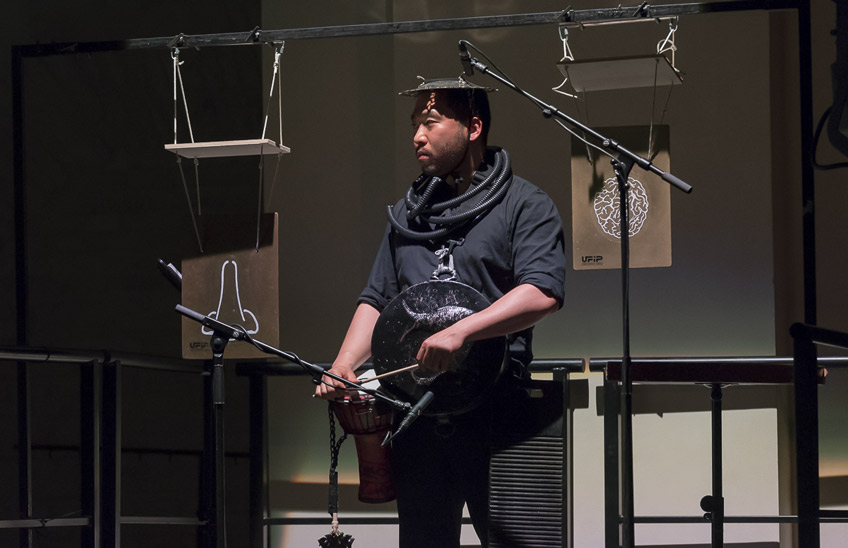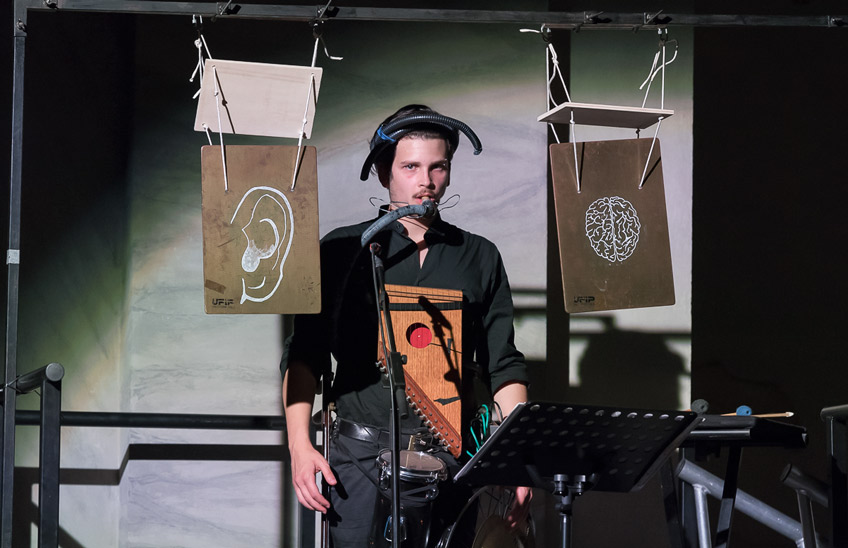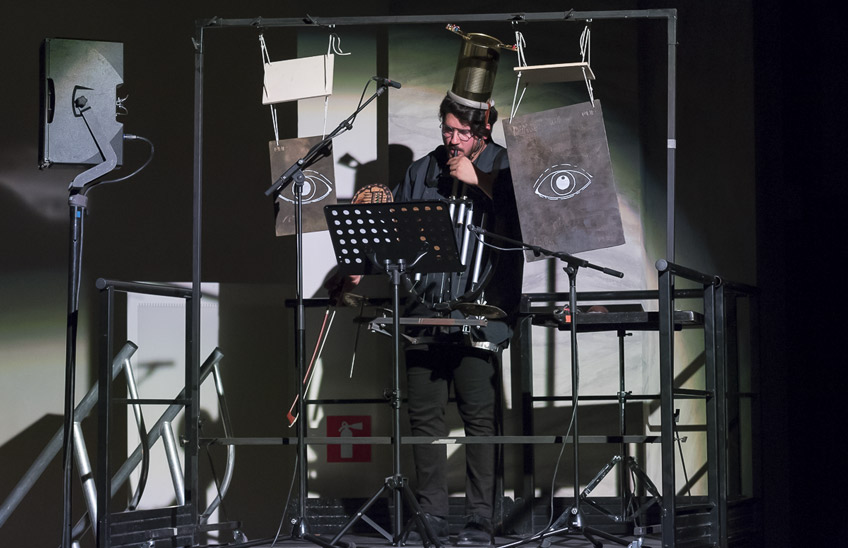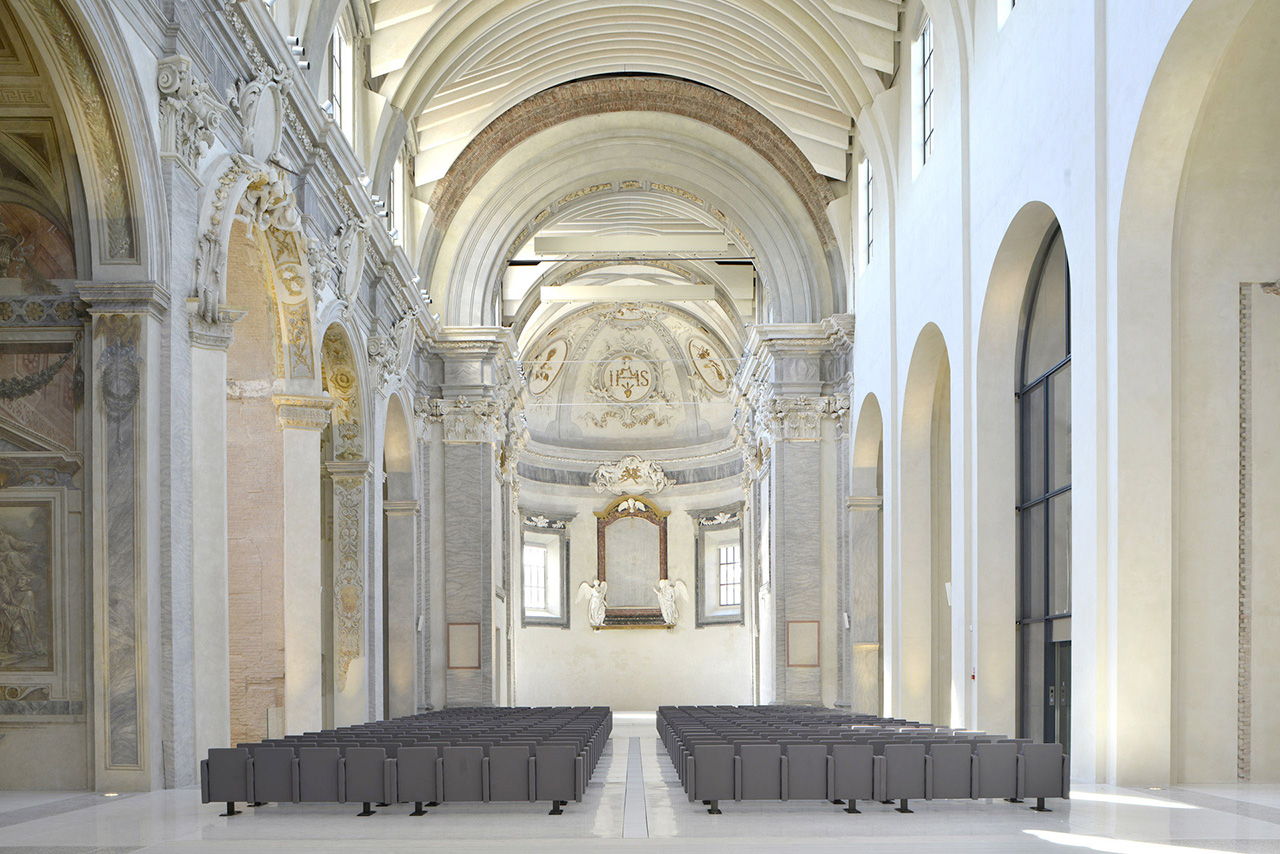© Angelo Palmieri
The 100 Percussions
Karlheinz Stockhausen
Kathinkas Gesang als Luzifers Requiem
The song of Kathinka, or the Requiem for Lucifer from Samstag aus Licht (Saturday from Light)
Manuel Zurria flute
Alvise Vidolin live electronics
with Chigiana Percussion Ensemble
conductor Antonio Caggiano
in collaboration with Accademia Musicale Chigiana
Iannis Xenakis
Psappha
per 1 percussionista
Jamil Zidan
Giacinto Scelsi
I funerali di Achille
per 4 percussionisti
v
Karlheinz Stockhausen
Vibra Elufa
per vibrafono
Antonio Restuccia
Kathinkas Gesang
per flauto e 6 percussionisti
Manuel Zurria flauto
Riccardo Terlizzi, Alessio Cavaliere, Berardo Di Mattia, Antonio Restuccia, Jamil Zidan, Jin Sun You percussioni
The 100 Percussions – carnet € 60 (except the Trekking Concert)
Over a quarter of a century, from 1978 to 2003, Karlheinz Stockhausen wrote the 16 hours of music (extendible to 29) of Licht – Die sieben Tage der Woche (The Seven Days of the Week), seven works associated to each day of the week and each one of the seven planets of the ancient age, structured through the relationships of only three characters: Lucifer, Michael, and Eve. It is a symbolic world connecting the daily and eternal life, myths and religions of the Western and Eastern worlds. It is, above all, a challenge to the passing time. Stockhausen also meant to challenge the Day (something he did with Klang, stopping at the 21st hour though), then the Hour, the Minute, and even the Second. The song of Kathinka belongs to Saturday, the day of Saturn, therefore Lucifer’s: a shift toward the Light. In this piece, the function of the song is to protect the dead souls from temptations, through – as Stockhausen himself explained – “musical exercises to listen to regularly for 49 days after the physical death”. Likewise Vibra Elufa is taken as an independent work from the last scene of Friday, representing the temptation of Eve by Lucifer. Licht can be described as a great music rite, just like Giacinto Scelsi’s I funerali di Achille (1962); the composer “officiated” the funerals of Alexander the Great and Charlemagne as well, and preferred to describe himself as an “intermediary” rather than the creator of his own pieces. Also Iannis Xenakis’s Psappha (1975) – the ancient name of poetess Sappho – is permeated by a masculine and archaic ritualistic power: it is built on 2.396 segments that take the place of the traditional musical notation, creating rhythmic cells that bridle both the performer and the audience in a joined participation without any chance to flee.
